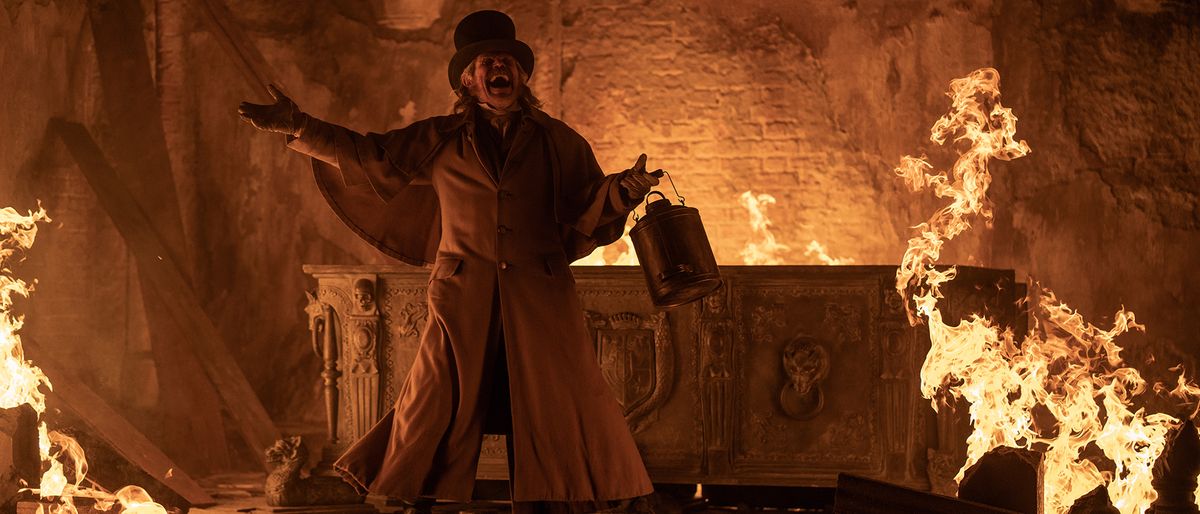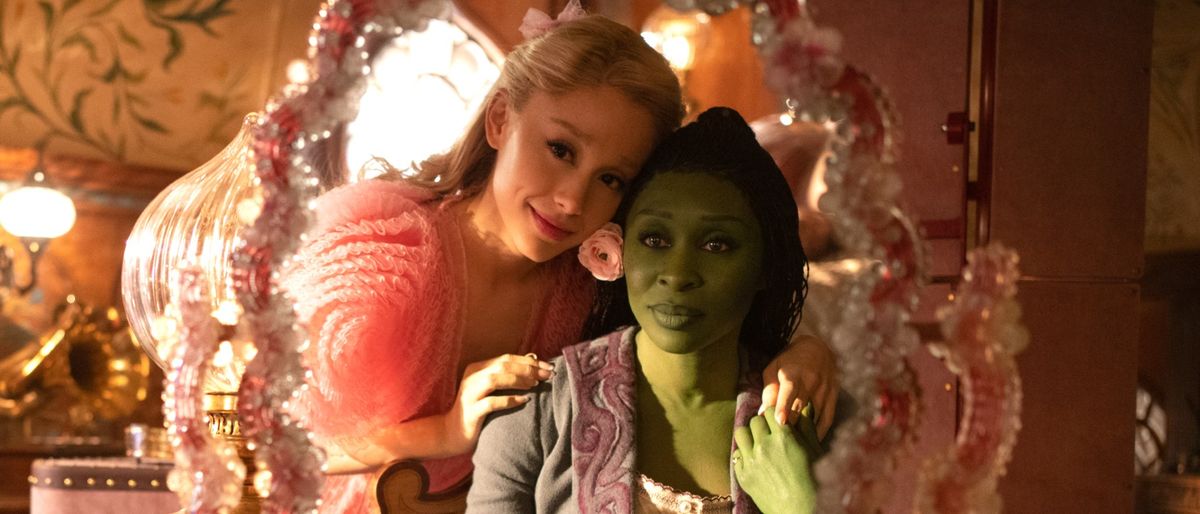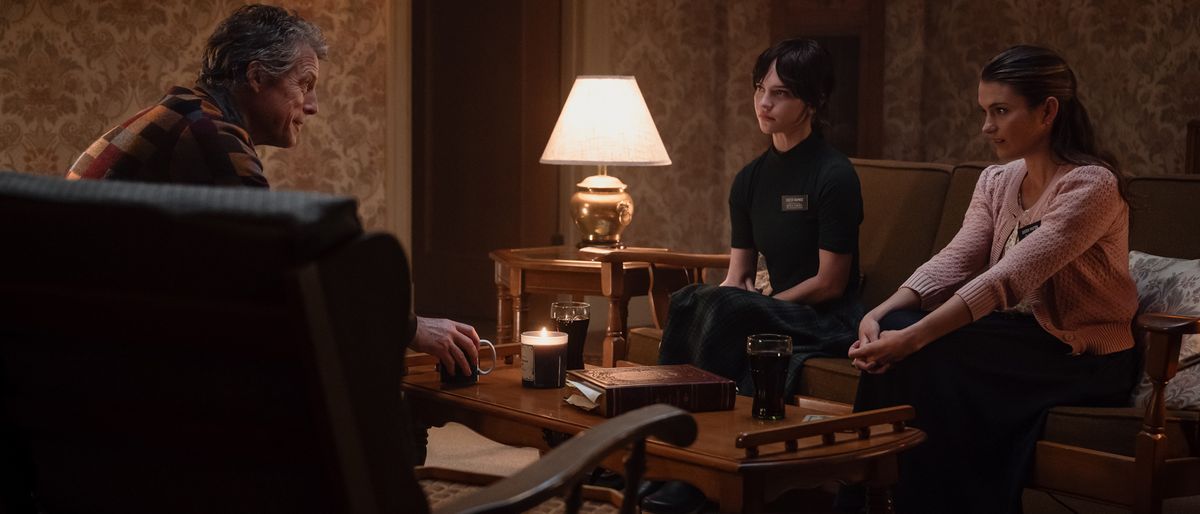
Although the earlier Fifty Shades movies had been justly slammed for a laughable lack of chemistry between the leads, wasted secondary characters, inane dialogue, and erratic plot traces, the third and remaining installment of the trilogy, Fifty Shades Freed, doesn’t be taught from these previous errors however as a substitute doubles down on them. At least you’ll be able to say the sequence is constant.
Fifty Shades Freed begins with the marriage and honeymoon of Ana (Dakota Johnson) and Christian (Jamie Dornan). Despite purportedly being modified by the love of a very good girl within the earlier movies, Christian continues to be creepily controlling and jealous, chastising Ana for baring an excessive amount of pores and skin in her bikini. This leads Ana to counter with maybe the film’s greatest line of dialogue: “It’s boobs in boobland here.” (If that weren’t cringeworthy sufficient, Christian’s ridiculous catchphrase of “laters, baby” makes one other look.)
Soon after, the villain created on the finish of Fifty Shades Darker, disgraced ebook editor Jack Hyde (Eric Johnson), reemerges as a terrorist-level tech wiz who’s instantly capable of sabotage helicopters and break into Grey Enterprises. Perhaps it’s the persistent, attractive pop soundtrack or the dead-eyed leads, however Hyde by no means appears like an precise risk, not even when he’s holding a knife to Ana’s throat. This may be forgivable if Hyde’s actions had been a catalyst for any plausible character progress or elevated depth in Ana and Christian’s relationship. Alas, the movie is principally preoccupied with glamorous montages and organising ham-fisted segues into largely non-BDSM intercourse scenes between the newlyweds, even amid main discussions like whether or not they need to have youngsters (which Ana doesn’t carry up till after their honeymoon).
The foremost purpose of Freed is to point out how Ana continues to evolve into a powerful girl who can change Christian into a greater man. While the primary movie was content material to let her be a cipher for feminine viewers and merely suggest that she’s “special,” Freed makes use of dialogue to try to gaslight the viewers into believing that Ana has any company. Despite all proof on the contrary, Freed tells viewers that Ana has completely earned her job on the firm her husband owns, that being unbiased means avoiding security precautions once you’re being stalked, and that being “tenacious” means complying with the calls for of a mentally unhinged kidnapper and by no means asking for assist. Ana may provide up just a few eyerolls and half-hearted resistance towards her domineering husband, however on the finish of the day, she says it herself: “Christian, you’re my whole life.” And apparently it simply takes another person moreover him stalking his spouse for Christian to not solely fully rearrange his priorities, however rework right into a primary suburban dad who wears polos and khakis. It doesn’t seem to be both Ana or Christian are “freed” on this relationship. In reality, it’s ironic that this romantic fantasy results in a stereotypical, steady domesticity that some followers of the unique ebook sequence had been attempting to free themselves from by studying Fifty Shades within the first place.
Like the opposite installments within the sequence, Freed takes itself method too severely, refusing to only let free and be in on the joke. Though it’s the shortest movie within the franchise, the film drags. Plot is haphazardly thrown on the viewers in chunks between lifeless intercourse scenes in a painful try to decorate up the hackneyed Cinderella plot at its core. “Don’t miss the climax” is the film’s tagline, however a extra apropos slogan can be: “Watch this fumbling, frustrating franchise fizzle into a pop-culture footnote.”
Source


